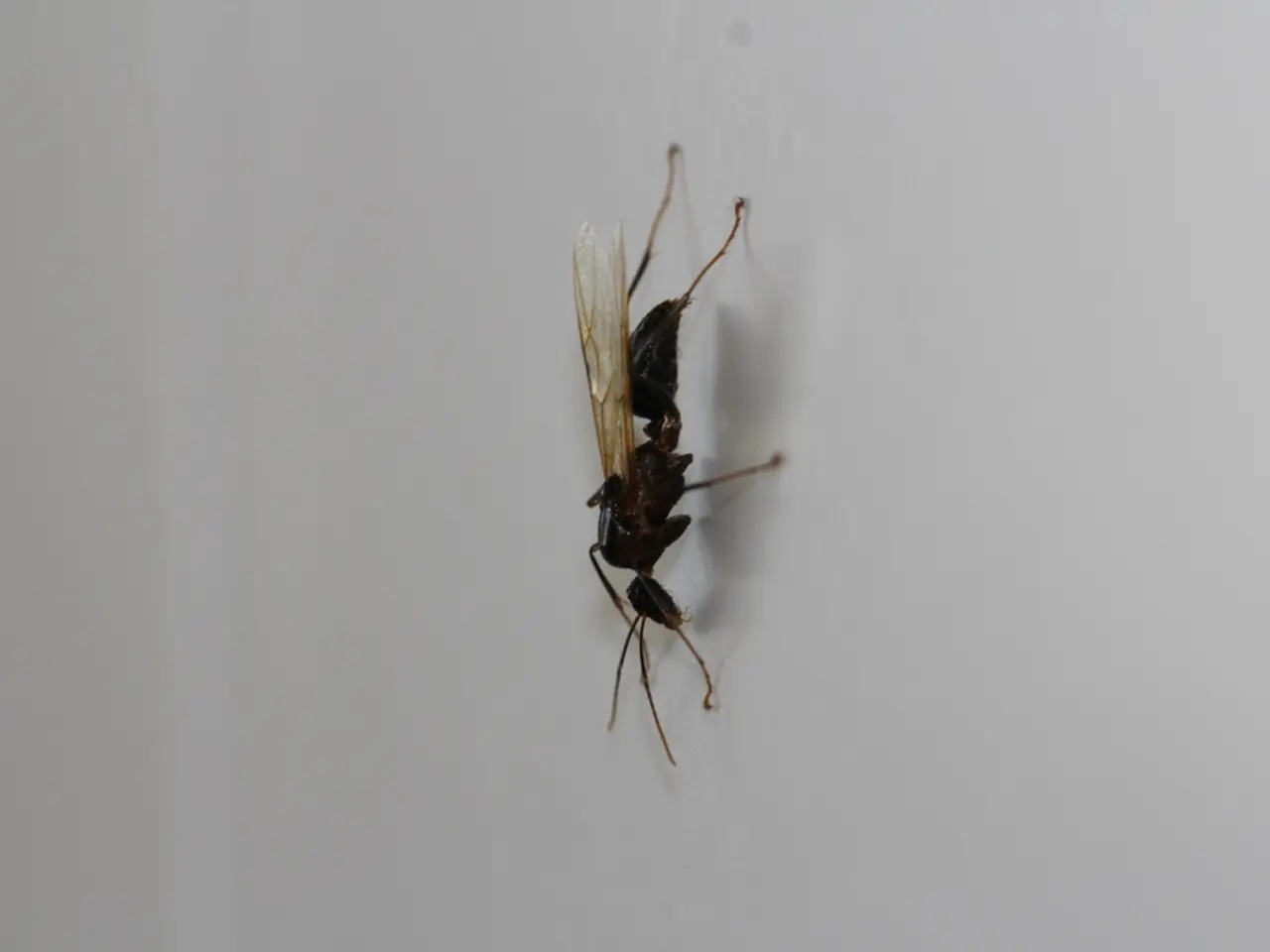Asian hornets are advancing according to a worrisome expert warning
In the picturesque town of Trier, Germany, residents like Bernadette Holzapfel are on high alert due to the increasing presence of the Asian hornet. Holzapfel, a retiree from Hermeskeil, recently had a close encounter with one of these invasive insects while gardening, leaving her with weeks of pain.
The Asian hornet, scientifically known as Vespa velutina, has been spreading in the Trier region, causing concern among both local authorities and residents. Carsten Emser, the hornet controller, has reported an eightfold increase in the number of nests he's removed this year compared to the previous one.
The Asian hornet is notorious for its aggressive behaviour and can pose a danger to humans, even a slight touch can be interpreted as an attack. Emser fears that more laypeople will attempt to remove nests without proper knowledge and equipment, potentially leading to dangerous situations.
The suspected nest near Holzapfel's hedge was immediately cordoned off for safety reasons. However, it's unclear at this time who will bear the cost of removal in Trier, as specific search results for current pricing or details on payment responsibility are scarce.
In general, the removal of Asian hornets typically involves local environmental authorities or specialized pest control services. Costs can vary but often range from approximately 100 to 300 euros depending on the nest size and location. In many German municipalities, if the Asian hornet is considered a harmful invasive species, the local government or environmental agency might cover or subsidize removal costs to protect public health and local ecosystems. Property owners may also be responsible if the nest is on private property, depending on local regulations.
Emser expresses concern about the lack of research on Asian hornets, despite visible consequences. He also points out the potential dangers of improper nest removal, emphasizing the need for a thick protective suit, expert knowledge, and special equipment to safely carry out the process.
The Ministry of the Environment no longer considers itself responsible for the Asian hornet issue, as long as there is no clear evidence of damage to biodiversity. However, the potential consequences of a large Asian hornet population are significant, particularly for wild and honey bees, as targeted attacks on honey bees were observed in the region last year.
By the end of March 2025, the Federal Ministry of the Environment has classified the Asian hornet as "widespread". As a result, municipalities, nature conservation authorities, or private individuals now decide whether to remove a nest, and whoever orders the deployment must also pay for it.
Holzapfel is relieved she hasn't had to pay for the removal service yet, but she urges other residents to stay vigilant and report any suspicious nests to local authorities. Emser advises everyone to avoid any direct contact with the Asian hornet and to seek professional help if a nest is discovered on their property.
- The Asian hornet, a subject in both environmental science and climate-change discussions, has become a concern in the policy-and-legislation arena due to its invasive nature in Trier, Germany.
- As the number of Asian hornet nests increase in the region, the necessity for proper removal techniques, especially in regards to safety, has come under scrutiny in the realm of politics and general news.
- With the removal costs of Asian hornets ranging from 100 to 300 euros, the question of who bears the expense in Trier has emerged as a topic in conversations about environmental-science and policy-and-legislation.







